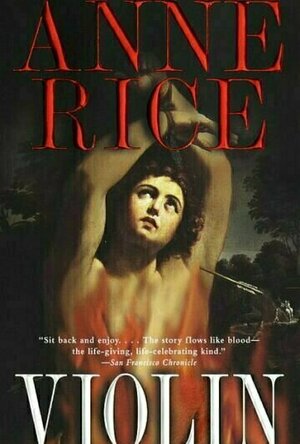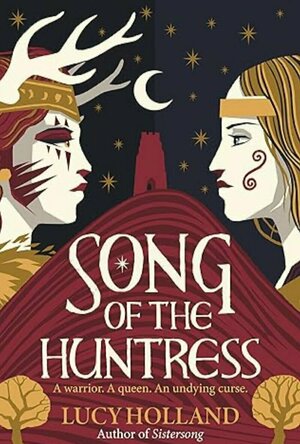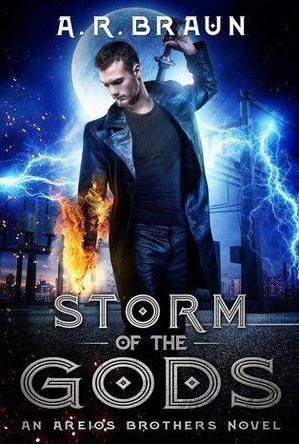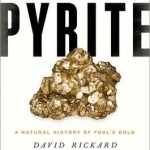
Pyrite: A Natural History of Fool's Gold
Book
Most people have heard of pyrite, the brassy yellow mineral commonly known as fool's gold. But...
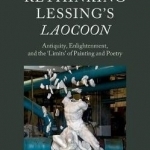
Rethinking Lessing's Laocoon: Antiquity, Enlightenment, and the 'Limits' of Painting and Poetry
Michael Squire and Avi S. Lifschitz
Book
Gotthold Ephraim Lessing first published Laokoon, oder uber die Grenzen der Mahlerey und Poesie...
ClareR (6091 KP) rated Song of the Huntress in Books
Jun 25, 2024
This had just the right amount of history, myth and magic for me - well, anything with those three things in is a winner, in my opinion!
With the resurgence of Greek Myth (yes, I’m a fan), it has been really heartening to see the odd Norse and Celtic myth and folklore book coming out. I enjoy a good retelling, and 5is is a good read. Yes, there are some seemingly modern themes: Æthelburg and Herla’s attraction and Ine’s asexuality in particular, but who’s to say these weren’t appropriate in 60AD? I’m sure homosexuality and asexuality have been a ‘thing’ for as long as there’s been humans (there probably is someone who could say - this is the internet, after all).
To me, as a listener/ reader, this just felt really genuine and well researched. I loved learning about the characters and their world.
Just as Sistersong left me eagerly awaiting Song of the Huntress, I’m really looking forward to whatever comes next from Lucy Holland.
River and Road: Fort Myers Architecture from Craftsman to Modern
Book
River & Road is a visual and narrative history of the architectural evolution and urban development...
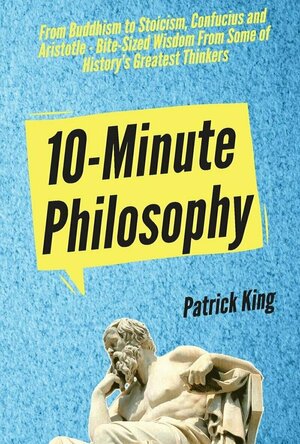
10-Minute Philosophy: From Buddhism to Stoicism, Confucius and Aristotle - Bite-Sized Wisdom From Some of History’s Grea
Book
Classic ideas and ancient concepts broken down for the modern age. A non-academic approach to better...
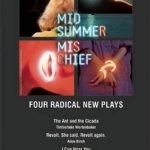
Midsummer Mischief: Four Radical Plays
Timberlake Wertenbaker, Alice Birch, E.V. Crowe and Abi Zakarian
Book
A volume of four new plays as part of the RSC's Midsummer Mischief by Alice Birch, E. V. Crowe,...
Debbiereadsbook (1669 KP) rated Storm Of The Gods: An Areios Brothers Novel #1 in Books
Sep 1, 2018
30 years ago, the Greek gods re-emerged into the modern world from their enforced sleep. Since then, scions, direct descendants of those gods, have been doing their bidding and keeping the human population safe from the mythical beats of old. Derek and his 18 year old brother Liam, are war scions, doing the bidding of Ares, the god of war. Ares orders Derek to find and kill four rogue scions, by threatening Liam and Derek will do anything to keep his brother safe. But not all is as it seems, and Derek, Liam and the four scions find themselves in a battle to keep the mighty Titans at sleep.
**insert sigh**
For the most part,I did enjoy this. It took a while for me to get into it. There are several HUGE info dumps near the beginning and I didn't like that., It came at you all in one go, and I did not process all of that information, there was so much. It meant I got lost a little in places later on.
But it's all the history of the gods that dumps on you. You don't get all of Derek and Liam's history in that dump. That comes out in dribs and drabs, slow enough for you to process their history, before the next bit is thrown at you. And I think there may be more to come, I really do.
It is HEAVY on the fighting. Derek, Liam and the scions do a lot of fighting and it is described in all its detail. A bit too much for me.
Only Derek has his say, in the first person. I think if Liam, and maybe one of the scions, Selena, had their say too, even in the first, I might have enjoyed this one a little more.
I DID like the story itself, info dump and fighting aside, I did not see a lot coming at me, kept me on my toes.
There is something brewing between Derek and Selena, and I hope that plays out how I see playing out! But Derek has more secrets to reveal, some I don't think he even knows about yet. And he still has to get out of the war pact made with Ares, but to do that, Derek has to do what Ares asked him to. Derek does not want to do that now.
Will I read the next book?? Yes, I'd like to, if only to see how this all goes down.
So, because of the massive info dump, and because only Derek has a say....
3 solid good stars
**same worded review will appear elsewhere**

The Pietro Bembo on Etna: The Ascent of a Venetian Humanist
Book
This book is centered on the Venetian humanist Pietro Bembo (1470-1547), on his two-year stay in...
Rachel King (13 KP) rated A Short History of Myth in Books
Feb 11, 2019
In seven chapters, Armstrong takes a simplified stroll through history, focusing on the concept of myth and its impact on civilization. All throughout the book, she attempts to support her claim that a person can believe in myths without believing that the myths are actually true, and that the failure of modern society is by not following her specific edict. While this notion strikes me as absurd, I keep reading because, hey, it's a short book.
While I know only bits and pieces about many of the world's religions, I do know both the history and the holy book of my religion, Christianity. It becomes apparent to me early in the text that she is masking her opinions and interpretations of this religion as actual fact, so I can only imagine how she misconstrues other religions.
Her citations were lacking to me, with many claims going unsupported, others only partially supported, such as citation #84 and #30, and some citations simply not even applying to the specified text, such as citation #87. In citation #55, she claims that the Bible contains a Creation myth in which God brings the world into being by killing a sea monster, but one of the four verses she cites make no reference to anything of the sort (Job 3:12), and the other three (Isaiah 27:1, Job 26:13, Psalm 74:14) that do mention a leviathan cannot be interpreted that way when read in context. Isaiah is describing the end of days, while Job merely says that God created the serpent, and the verse in Psalm is within the context of a song about God rescuing the Hebrews from Egyptian slavery -- no relevancy to Creation. She makes the claim that Paul "was not much interested in Jesus's teachings, which he rarely quotes, or in the events of his earthly life." This claim is easily disproved by examining how Paul's words line up with Jesus's in John 5:21 vs. 1 Corinthians 15:22, Matthew 6:25 vs. Philippians 4:6, and many other passages.
While going through the citations, I got the feeling that the author depended on secondary sources for her information without actually studying the original source of her information. The book struck me as highly opinionated, vague, and too general for the topic being addressed. I have no doubt that there are better and more thorough books available on the topic of myth. I do not believe that I will be reading any more of Armstrong's works in the future.
